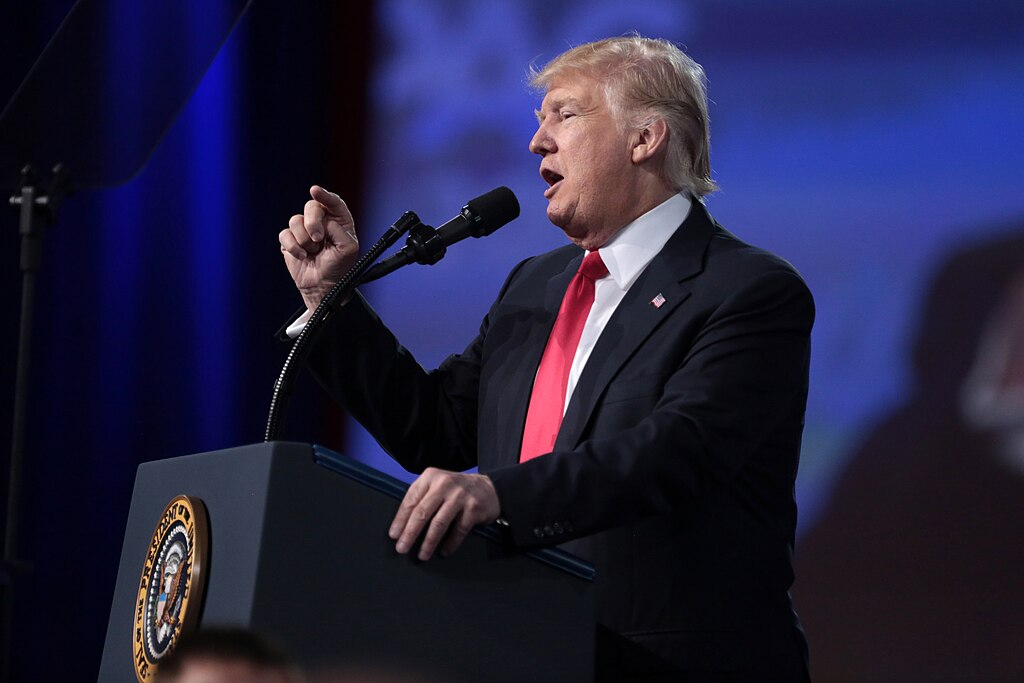As terrorism remains a significant global threat, former President Donald Trump has unveiled his counterterrorism strategy for 2025, which he describes as a “game-changing approach” to national security. The plan, revealed during a press conference in Washington, D.C., includes a mix of aggressive military action, enhanced domestic surveillance, and an emphasis on international partnerships. Critics and supporters alike are divided over the implications of this approach, with some hailing it as decisive and others condemning it as overreaching.
Revamped Military Tactics to Combat Terrorism
A cornerstone of Trump’s 2025 strategy is his commitment to heightened military operations against terrorist organizations. The plan includes a 25% increase in defense spending, aimed at equipping the armed forces with advanced technologies such as AI-powered drones and cyber warfare capabilities. Trump stressed the importance of proactive measures, stating, “We won’t wait for terrorists to attack us—we’ll take the fight to them.”
Additionally, Trump proposed expanding U.S. military bases in the Middle East and Africa, regions often regarded as hotbeds for terrorist activity. He emphasized that these efforts would target not only well-known groups like ISIS and al-Qaeda but also emerging threats in unstable regions.
However, critics warn that increased military activity in foreign territories could escalate tensions and lead to unintended consequences, including civilian casualties and anti-American sentiment.
Domestic Security Measures Spark Debate
On the home front, Trump’s strategy calls for enhanced domestic surveillance programs to detect and prevent potential terrorist plots. This includes bolstering partnerships between federal agencies, such as the FBI and DHS, and utilizing data collection technologies to monitor online activity.
Privacy advocates have expressed concern over potential violations of civil liberties. Critics argue that such measures could disproportionately target minority communities and fuel distrust between law enforcement and the public. Despite these concerns, Trump defended the approach, asserting that “national security must always come first.”
Mixed Reactions From Social Media
Trump’s counterterrorism strategy has ignited fierce debates across social media platforms, reflecting a broad spectrum of opinions.
- @PatriotShield45: “Finally, a leader willing to take terrorism seriously. This plan is what America needs to feel safe!”
- @CivilRightsNow: “Domestic surveillance? Sounds like an excuse to spy on Americans and strip us of our rights.”
- @VeteranVoice: “Military expansion is necessary, but let’s not forget the lessons of the past. Wars come at a cost.”
- @TechForChange: “AI in warfare? This could backfire spectacularly. Technology can’t solve everything.”
- @PeaceAdvocate2025: “More boots on foreign soil? This will just create more enemies abroad. We need diplomacy, not force.”
- @NationalSecurityPro: “This strategy is aggressive, but it might be the bold action needed to counter evolving threats.”



 Iran Supreme Leader Ayatollah Ali Khamenei Killed in Israeli, U.S. Strikes: Reuters
Iran Supreme Leader Ayatollah Ali Khamenei Killed in Israeli, U.S. Strikes: Reuters  Trump Announces U.S. Strikes on Iran Navy as Conflict Escalates
Trump Announces U.S. Strikes on Iran Navy as Conflict Escalates  Pakistan-Afghanistan Tensions Escalate as Taliban Offer Talks After Airstrikes
Pakistan-Afghanistan Tensions Escalate as Taliban Offer Talks After Airstrikes  Trump Warns Iran as Gulf Conflict Disrupts Oil Markets and Global Trade
Trump Warns Iran as Gulf Conflict Disrupts Oil Markets and Global Trade  Trump Launches Operation Epic Fury: U.S. Strikes on Iran Mark High-Risk Shift in Middle East
Trump Launches Operation Epic Fury: U.S. Strikes on Iran Mark High-Risk Shift in Middle East  U.S. Lawmakers Question Trump’s Iran Strategy After Joint U.S.-Israeli Strikes
U.S. Lawmakers Question Trump’s Iran Strategy After Joint U.S.-Israeli Strikes  Israel Launches Fresh Strikes on Iran After Death of Supreme Leader Ayatollah Khamenei
Israel Launches Fresh Strikes on Iran After Death of Supreme Leader Ayatollah Khamenei  Middle East Conflict Escalates After Khamenei’s Death as U.S., Israel and Iran Exchange Strikes
Middle East Conflict Escalates After Khamenei’s Death as U.S., Israel and Iran Exchange Strikes  Trump Says U.S. Attacks on Iran Will Continue, Warns of More American Casualties
Trump Says U.S. Attacks on Iran Will Continue, Warns of More American Casualties  Israel Strikes Hezbollah Targets in Lebanon After Missile and Drone Attacks
Israel Strikes Hezbollah Targets in Lebanon After Missile and Drone Attacks  UK Accepts U.S. Request to Use British Bases for Defensive Strikes on Iranian Missiles
UK Accepts U.S. Request to Use British Bases for Defensive Strikes on Iranian Missiles  EU Urges Maximum Restraint in Iran Conflict Amid Fears of Regional Escalation and Oil Supply Disruption
EU Urges Maximum Restraint in Iran Conflict Amid Fears of Regional Escalation and Oil Supply Disruption  Pentagon to Halt Ivy League Programs for U.S. Military Officers Starting 2026
Pentagon to Halt Ivy League Programs for U.S. Military Officers Starting 2026  U.S. Deploys Tomahawks, B-2 Bombers, F-35 Jets and AI Tools in Operation Epic Fury Against Iran
U.S. Deploys Tomahawks, B-2 Bombers, F-35 Jets and AI Tools in Operation Epic Fury Against Iran  Trump Floats “Friendly Takeover” of Cuba as Rubio Reportedly Engages in Talks
Trump Floats “Friendly Takeover” of Cuba as Rubio Reportedly Engages in Talks  Australia Rules Out Military Involvement in Iran Conflict as Middle East Tensions Escalate
Australia Rules Out Military Involvement in Iran Conflict as Middle East Tensions Escalate  Trump to Address Nation as U.S. Launches Strikes in Iran, Axios Reports
Trump to Address Nation as U.S. Launches Strikes in Iran, Axios Reports 
































